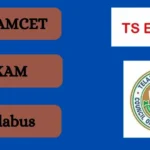Recently updated on December 4th, 2024 at 06:59 am
The NEET Syllabus (National Eligibility and Entrance Test) is meant to assess candidates’ knowledge and understanding of Physics, Chemistry, and Biology (Botany and Zoology) in grades 11 and 12. Here is a thorough summary of the syllabus.
1. Physics
Class 11:
1. Physical World and Measurement
- Units and Measurements
- Dimensions of Physical Quantities
- Accuracy and Precision
2. Kinematics
- Motion in a Straight Line
- Motion in a Plane
3. Laws of Motion
- Newton’s Laws of Motion
- Friction
- Circular Motion
4. Work, Energy, and Power
- Work Done by a Force
- Energy and Its Forms
- Power
5. Motion of System of Particles and Rigid Body
- Center of Mass
- Rotational Motion
- Moment of Inertia
6. Gravitation
- Universal Law of Gravitation
- Acceleration Due to Gravity
- Gravitational Potential Energy
7. Properties of Bulk Matter
- Elasticity
- Fluid Mechanics
- Thermal Properties of Matter
8. Thermodynamics
- Laws of Thermodynamics
- Heat Engines
- Entropy
9. The behaviour of Perfect Gas and Kinetic Theory
- Kinetic Theory of Gases
- Gas Laws
- Degrees of Freedom
10. Oscillations and Waves
- Simple Harmonic Motion
- Wave Motion
- Doppler Effect
Class 12:
1. Electrostatics
- Electric Charges and Fields
- Gauss’s Law
- Capacitance
2. Current Electricity
- Electric Current
- Ohm’s Law
- Kirchoff’s Laws
3. Magnetic Effects of Current and Magnetism
- Magnetic Field and Forces
- Electromagnetic Induction
- Alternating Currents
4. Electromagnetic Waves
- Maxwell’s Equations
- Electromagnetic Spectrum
5. Optics
- Ray Optics
- Wave Optics
- Optical Instruments
6. Dual Nature of Matter and Radiation
- Photoelectric Effect
- Matter Waves
7. Atoms and Nuclei
- Atomic Models
- Radioactivity
- Nuclear Reactions
8. Electronic Devices
- Semiconductors
- Diodes and Transistors
- Digital Electronics
2. Chemistry
Class 11:
1. Some Basic Concepts of Chemistry
- Laws of Chemical Combination
- Dalton’s Atomic Theory
2. Structure of Atom
- Atomic Models
- Quantum Numbers
3. Classification of Elements and Periodicity in Properties
- Periodic Table
- Periodic Trends
4. Chemical Bonding and Molecular Structure
- Ionic and Covalent Bonding
- VSEPR Theory
5. States of Matter: Gases and Liquids
- Gas Laws
- Liquids and Solids
6. Thermodynamics
- First Law of Thermodynamics
- Enthalpy and Entropy
7. Equilibrium
- Chemical Equilibrium
- Le Chatelier’s Principle
8. Redox Reactions
- Oxidation and Reduction
- Electrochemical Cells
9. Hydrogen
- Properties and Uses
10. s-Block Element (Alkali and Alkaline Earth Metals)
- Properties
- Compounds
11. Some p-Block Elements
- Properties and Compounds of Elements
12. Organic Chemistry – Some Basic Principles and Techniques
- Classification of Organic Compounds
- Reactions and Mechanisms
13. Hydrocarbons
- Alkanes, Alkenes, Alkynes
- Aromatic Hydrocarbons
14. Environmental Chemistry
- Pollution and Its Effects
Class 12:
1. Solid State
- Classification of Solids
- Crystal Lattices
2. Solutions
- Concentration Terms
- Colligative Properties
3. Electrochemistry
- Electrochemical Cells
- Batteries and Corrosion
4. Chemical Kinetics
- Rate of Reactions
- Order of Reaction
5. Surface Chemistry
- Adsorption
- Catalysis
6. General Principles and Processes of Isolation of Elements
- Metallurgy
- Extraction of Metals
7. p-Block Elements
- Group-wise Properties and Compounds
8. d and f Block Elements
- Transition Metals
- Lanthanides and Actinides
9. Coordination Compounds
- Ligands and Coordination Number
- Isomerism
10. Haloalkanes and Haloarenes
- Nomenclature and Reactions
11. Alcohols, Phenols, and Ethers
- Properties and Reactions
12. Aldehydes, Ketones, and Carboxylic Acids
- Nomenclature and Reactions
13. Organic Compounds Containing Nitrogen
- Amines and Nitriles
14. Biomolecules
- Carbohydrates
- Proteins and Nucleic Acids
15. Polymers
- Classification and Uses
16. Chemistry in Everyday Life
- Applications of Chemistry in Daily Life
3. Biology
Class 11:
1. Diversity in the Living World
- Classification of Living Organisms
- Plant and Animal Kingdoms
2. Structural Organisation in Animals and Plants
- Anatomy of Animals
- Plant Anatomy
3. Cell Structure and Function
- Cell Organelles
- Cell Division
4. Plant Physiology
- Photosynthesis
- Respiration
- Transportation in Plants
5. Human Physiology
- Digestion and Absorption
- Circulation
- Excretion and Osmoregulation
Class 12:
1. Reproduction
- Reproductive Health
- Human Reproduction
- Plant Reproduction
2. Genetics and Evolution
- Principles of Inheritance
- Molecular Basis of Inheritance
- Evolutionary Theories
3. Biology and Human Welfare
- Health and Diseases
- Biotechnology
4. Ecology and Environment
- Ecosystems
- Biodiversity and Conservation
Preparation Tips
- Understand the Syllabus: Familiarize yourself with the topics to be covered.
- Study NCERT Textbooks: These are the primary sources of content for NEET.
- Practice Previous Years’ Papers: Helps in understanding the pattern and types of questions.
- Take Mock Tests: To assess your preparation and improve your time management skills.
By thoroughly covering these topics and practising extensively, you will be well-prepared for the NEET.
Conclusion:
To summarize, competitive exams in Telangana have a significant impact on students’ educational and career pathways. These exams, which range from engineering and medical college entrance exams to state-level assessments for government jobs, serve as critical gates to opportunity.
Understanding the syllabus, exam format, and study tactics for each test will greatly improve your chances of success. By remaining informed and rigorously preparing, you may effectively navigate these competitive landscapes and achieve your academic and career objectives. Maintain a concentrated mindset, use available tools, and approach each exam with confidence.






